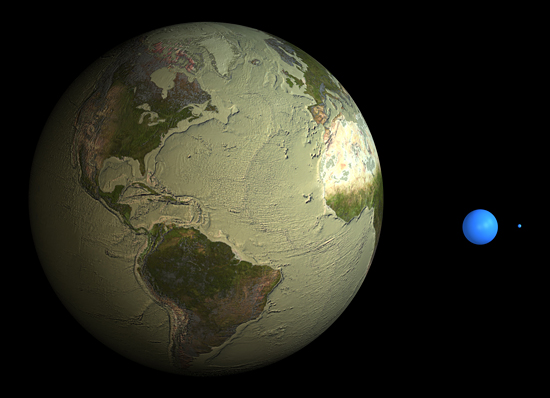Obviously life on Earth is nothing like mechanical machinery, but I'm going to risk using mechanical machinery as a metaphor for life to explain how I think of the role of water on the Earth.
The way I see it, water works as a lubricant which makes it possible for the "gears of the machine" to move much at all. And then water is a catalyst for chemical processes.
Will the machinery - the biosphere of the Earth - work better if you add huge amounts of lubricants and catalysts? Imagine sinking the cogs and wheel thingy in the picture into a tank of lubricants. Then you make it stay in that tank. You don't necessarily add a lot of power or forces into the tank of lubricant. The machinery is just sitting there, submerged in a tank of quiet liquid. Will there be a lot of things going on with the machinery in the tank of lubricant? I doubt it.
That's how I think of water on the Earth. No, we actually don't have that much of it. So what? Would there be more life on Earth if the Earth had more water? I doubt it. Do we find the greatest amount and variety of life where the oceans of the Earth are deepest? Not to my knowledge.
http://en.wikipedia.org/wiki/Mariana_Trench reports that there is indeed life at the bottom of the Mariana Trench, the deepest part of the world's oceans. But although the Mariana Trench is not a dead place, there is not that much life there.
It's not having huge amounts of water that counts. It's having the right amount of water that counts, and having it in the right phase states - solid, liquid and gaseous - and having it where it can serve as a lubricant for the forces of plate tectonics and volcanism, and having it as a catalyst for life.
Ann
 All the Water on Planet Earth
All the Water on Planet Earth


